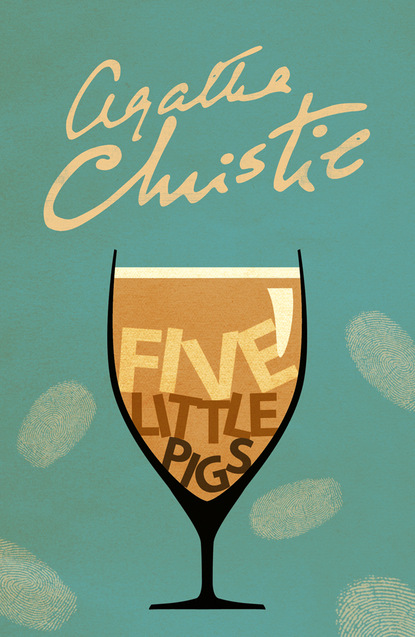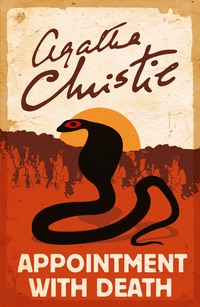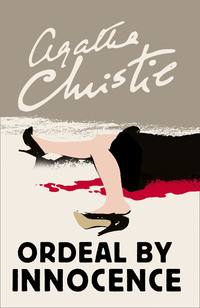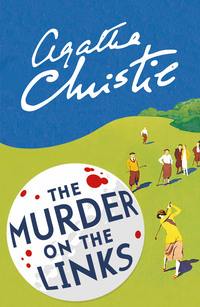
Полная версия
Third Girl
‘But that is not where she lives, I presume. You have her address?’
‘Oh yes, a great block of flats. I don’t really understand your interest.’
‘One is interested in so many things.’
‘What do you mean?’
‘What brought you to that house—(what is its name?—Crosshedges) today. Brought you secretly into the house and up the stairs.’
‘I came in the back door, I admit.’
‘What were you looking for upstairs?’
‘That’s my business. I don’t want to be rude—but aren’t you being rather nosy?’
‘Yes, I am displaying curiosity. I would like to know exactly where this young lady is.’
‘I see. Dear Andrew and dear Mary—lord rot ’em—are employing you, is that it? They are trying to find her?’
‘As yet,’ said Poirot, ‘I do not think they know that she is missing.’
‘Someone must be employing you.’
‘You are exceedingly perceptive,’ said Poirot. He leant back.
‘I wondered what you were up to,’ said David. ‘That’s why I hailed you. I hoped you’d stop and give me a bit of dope. She’s my girl. You know that, I suppose?’
‘I understand that that is supposed to be the idea,’ said Poirot cautiously. ‘If so, you should know where she is. Is that not so, Mr—I am sorry, I do not think I know your name beyond, that is, that your Christian name is David.’
‘Baker.’
‘Perhaps, Mr Baker, you have had a quarrel.’
‘No, we haven’t had a quarrel. Why should you think we had?’
‘Miss Norma Restarick left Crosshedges on Sunday evening, or was it Monday morning?’
‘It depends. There is an early bus you can take. Gets you to London a little after ten. It would make her a bit late at work, but not too much. Usually she goes back on Sunday night.’
‘She left there Sunday night but she has not arrived at Borodene Mansions.’
‘Apparently not. So Claudia says.’
‘This Miss Reece-Holland—that is her name, is it not?—was she surprised or worried?’
‘Good lord, no, why should she be. They don’t keep tabs on each other all the time, these girls.’
‘But you thought she was going back there?’
‘She didn’t go back to work either. They’re fed up at the shop, I can tell you.’
‘Are you worried, Mr Baker?’
‘No. Naturally—I mean, well, I’m damned if I know. I don’t see any reason I should be worried, only time’s getting on. What is it today—Thursday?’
‘She has not quarrelled with you?’
‘No. We don’t quarrel.’
‘But you are worried about her, Mr Baker?’
‘What business is it of yours?’
‘It is no business of mine but there has, I understand, been trouble at home. She does not like her stepmother.’
‘Quite right too. She’s a bitch, that woman. Hard as nails. She doesn’t like Norma either.’
‘She has been ill, has she not? She had to go to hospital.’
‘Who are you talking about—Norma?’
‘No, I am not talking about Miss Restarick. I am talking about Mrs Restarick.’
‘I believe she did go into a nursing home. No reason she should. Strong as a horse, I’d say.’
‘And Miss Restarick hates her stepmother.’
‘She’s a bit unbalanced sometimes, Norma. You know, goes off the deep end. I tell you, girls always hate their stepmothers.’
‘Does that always make stepmothers ill? Ill enough to go to hospital?’
‘What the hell are you getting at?’
‘Gardening perhaps—or the use of weed killer.’
‘What do you mean by talking about weed killer? Are you suggesting that Norma—that she’d dream of—that—’
‘People talk,’ said Poirot. ‘Talk goes round the neighbourhood.’
‘Do you mean that somebody has said that Norma has tried to poison her stepmother? That’s ridiculous. It’s absolutely absurd.’
‘It is very unlikely, I agree,’ said Poirot. ‘Actually, people have not been saying that.’
‘Oh. Sorry. I misunderstood. But—what did you mean?’
‘My dear young man,’ said Poirot, ‘you must realise that there are rumours going about, and rumours are almost always about the same person—a husband.’
‘What, poor old Andrew? Most unlikely I should say.’
‘Yes. Yes, it does not seem to me very likely.’
‘Well, what were you there for then? You are a detective, aren’t you?’
‘Yes.’
‘Well, then?’
‘We are talking at cross purposes,’ said Poirot. ‘I did not go down there to inquire into any doubtful or possible case of poisoning. You must forgive me if I cannot answer your question. It is all very hush-hush, you understand.’
‘What on earth do you mean by that?’
‘I went there,’ said Poirot, ‘to see Sir Roderick Horsefield.’
‘What, that old boy? He’s practically ga-ga, isn’t he?’
‘He is a man,’ said Poirot, ‘who is in possession of a great many secrets. I do not mean that he takes an active part in such things nowadays, but he knows a good deal. He was connected with a great many things in the past war. He knew several people.’
‘That’s all over years ago, though.’
‘Yes, yes, his part in things is all over years ago. But do you not realise that there are certain things that it might be useful to know?’
‘What sort of things?’
‘Faces,’ said Poirot. ‘A well known face perhaps, which Sir Roderick might recognise. A face or a mannerism, a way of talking, a way of walking, a gesture. People do remember, you know. Old people. They remember, not things that have happened last week or last month or last year, but they remember something that happened, say, nearly twenty years ago. And they may remember someone who does not want to be remembered. And they can tell you certain things about a certain man or a certain woman or something they were mixed up in—I am speaking very vaguely, you understand. I went to him for information.’
‘You went to him for information, did you? That old boy? Ga-ga. And he gave it to you?’
‘Let us say that I am quite satisfied.’
David continued to stare at him. ‘I wonder now,’ he said. ‘Did you go to see the old boy or did you go to see the little girl, eh? Did you want to know what she was doing in the house? I’ve wondered once or twice myself. Do you think she took that post there to get a bit of past information out of the old boy?’
‘I do not think,’ said Poirot, ‘that it will serve any useful purpose to discuss these matters. She seems a very devoted and attentive—what shall I call her—secretary?’
‘A mixture of a hospital nurse, a secretary, a companion, an au pair girl, an uncle’s help? Yes, one could find a good many names for her, couldn’t one? He’s besotted about her. You noticed that?’
‘It is not unnatural under the circumstances,’ said Poirot primly.
‘I can tell you someone who doesn’t like her, and that’s our Mary.’
‘And she perhaps does not like Mary Restarick either.’
‘So that’s what you think, is it?’ said David. ‘That Sonia doesn’t like Mary Restarick. Perhaps you go as far as thinking that she may have made a few inquiries as to where the weed killer was kept? Bah,’ he added, ‘the whole thing’s ridiculous. All right. Thanks for the lift. I think I’ll get out here.’
‘Aha. This is where you want to be? We are still a good seven miles out of London.’
‘I’ll get out here. Goodbye, M. Poirot.’
‘Goodbye.’
Poirot leant back in his seat as David slammed the door.
Mrs Oliver prowled round her sitting-room. She was very restless. An hour ago she had parcelled up a typescript that she had just finished correcting. She was about to send it off to her publisher who was anxiously awaiting it and constantly prodding her about it every three or four days.
‘There you are,’ said Mrs Oliver, addressing the empty air and conjuring up an imaginary publisher. ‘There you are, and I hope you like it! I don’t. I think it’s lousy! I don’t believe you know whether anything I write is good or bad. Anyway, I warned you. I told you it was frightful. You said “Oh! no, no, I don’t believe that for a moment.”
‘You just wait and see,’ said Mrs Oliver vengefully. ‘You just wait and see.’
She opened the door, called to Edith, her maid, gave her the parcel and directed that it should be taken to the post at once.
‘And now,’ said Mrs Oliver, ‘what am I going to do with myself?’
She began strolling about again. ‘Yes,’ thought Mrs Oliver, ‘I wish I had those tropical birds and things back on the wall instead of these idiotic cherries. I used to feel like something in a tropical wood. A lion or a tiger or a leopard or a cheetah! What could I possibly feel like in a cherry orchard except a bird scarer?’
She looked round again. ‘Cheeping like a bird, that’s what I ought to be doing,’ she said gloomily. ‘Eating cherries… I wish it was the right time of year for cherries. I’d like some cherries. I wonder now—’ She went to the telephone. ‘I will ascertain, Madam,’ said the voice of George in answer to her inquiry. Presently another voice spoke.
‘Hercule Poirot, at your service, Madame,’ he said.
‘Where’ve you been?’ said Mrs Oliver. ‘You’ve been away all day. I suppose you went down to look up the Restaricks. Is that it? Did you see Sir Roderick? What did you find out?’
‘Nothing,’ said Hercule Poirot.
‘How dreadfully dull,’ said Mrs Oliver.
‘No, I do not think it is really so dull. It is rather astonishing that I have not found out anything.’
‘Why is it so astonishing? I don’t understand.’
‘Because,’ said Poirot, ‘it means either there was nothing to find out, and that, let me tell you, does not accord with the facts; or else something was being very cleverly concealed. That, you see, would be interesting. Mrs Restarick, by the way, did not know the girl was missing.’
‘You mean—she has nothing to do with the girl having disappeared?’
‘So it seems. I met there the young man.’
‘You mean the unsatisfactory young man that nobody likes?’
‘That is right. The unsatisfactory young man.’
‘Did you think he was unsatisfactory?’
‘From whose point of view?’
‘Not from the girl’s point of view, I suppose.’
‘The girl who came to see me I am sure would have been highly delighted with him.’
‘Did he look very awful?’
‘He looked very beautiful,’ said Hercule Poirot.
‘Beautiful?’ said Mrs Oliver. ‘I don’t know that I like beautiful young men.’
‘Girls do,’ said Poirot.
‘Yes, you’re quite right. They like beautiful young men. I don’t mean good-looking young men or smart-looking young men or well-dressed or well-washed looking young men. I mean they either like young men looking as though they were just going on in a Restoration comedy, or else very dirty young men looking as though they were just going to take some awful tramp’s job.’
‘It seemed that he also did not know where the girl is now—’
‘Or else he wasn’t admitting it.’
‘Perhaps. He had gone down there. Why? He was actually in the house. He had taken the trouble to walk in without anyone seeing him. Again why? For what reason? Was he looking for the girl? Or was he looking for something else?’
‘You think he was looking for something?’
‘He was looking for something in the girl’s room,’ said Poirot.
‘How do you know? Did you see him there?’
‘No, I only saw him coming down the stairs, but I found a very nice little piece of damp mud in Norma’s room that could have come from his shoe. It is possible that she herself may have asked him to bring her something from that room—there are a lot of possibilities. There is another girl in that house—and a pretty one—He may have come down there to meet her. Yes—many possibilities.’
‘What are you going to do next?’ demanded Mrs Oliver.
‘Nothing,’ said Poirot.
‘That’s very dull,’ said Mrs Oliver disapprovingly.
‘I am going to receive, perhaps, a little information from those I have employed to find it; though it is quite possible that I shall receive nothing at all.’
‘But aren’t you going to do something?’
‘Not till the right moment,’ said Poirot.
‘Well, I shall,’ said Mrs Oliver.
‘Pray, pray be very careful,’ he implored her.
‘What nonsense! What could happen to me?’
‘Where there is murder, anything can happen. I tell that to you. I, Poirot.’
Конец ознакомительного фрагмента.
Текст предоставлен ООО «ЛитРес».
Прочитайте эту книгу целиком, купив полную легальную версию на ЛитРес.
Безопасно оплатить книгу можно банковской картой Visa, MasterCard, Maestro, со счета мобильного телефона, с платежного терминала, в салоне МТС или Связной, через PayPal, WebMoney, Яндекс.Деньги, QIWI Кошелек, бонусными картами или другим удобным Вам способом.












